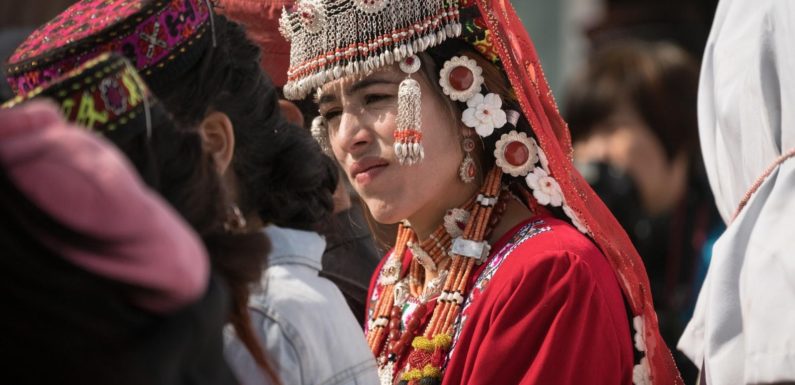
Cultural tourism means the movement of persons to cultural attractions with the intention to gather new information and experiences. The connection to a country’s cultural heritage holds a powerful attraction for many tourists and travelers. Cultural tourism relates to a city’s majestic art, fascinating architecture, age-old customs, traditions, the lifestyle of the people in that city, the history of those people, religion(s), impeccable hospitality, authentic cuisines, thriving nightlife, and many more facets. These compelling aspects make up the culture of a place that plays an influential role in developing and boosting the tourism of a particular destination. Cultural tourism normally includes tourism in urban areas, particularly historic or large cities and their cultural facilities such as museums and theatres.
Types of cultural tourists:
There are three main types of cultural tourists based upon the tourist’s level of motivation; culturally interested, motivated, or inspired. Culturally interested tourists demonstrate a general interest in culture and consume cultural attractions casually as part of a holiday rather than consciously planning to do so. Culturally motivated tourists consume culture as a major part of their trip whereas for culturally inspired tourists culture is the main goal of their holiday.
Importance of Cultural Tourism:
Cultural tourism has a positive economic and social impact. It establishes and reinforces identity, helps to build an image, enhances the cross-cultural understanding, and preserve the heritage and culture of an area. This is an essential element in preserving and enhancing national and local pride and spirit. Economically, tourists who visit an area to learn more about a culture help to contribute to the economy of the area. Cultural tourism brings employment prospects with it and tertiary businesses such as restaurants, taxi firms, and hotels can also benefit from it. Thus cultural tourism has emerged as a rising tourism trend.
Some Negative impacts attached to cultural tourism:
There is a myriad number of changes that come about as a result of tourism that is not desirable. You can find many lucid examples throughout the world where local populations have changed because of tourism. Perhaps their way of speaking and dressing for the tourists. They have been introduced to alcohol or they have become resentful of rich tourists and turned to crime. They are losing their individuality and their original identity. Some tribes are maintaining their identity successfully, take a look at the likes of the long neck tribe in Thailand or the Maasai Tribe in Africa. These are two examples of cultures that have remained ‘unchanged’ for ages. They appear not to have changed the way that they dress, the way they speak, or the way they act in generations. Moreover, tourism involves the movement of people to different geographical locations cultural clashes can take place as a result of differences in cultures, ethnic and religious groups, values, lifestyles, languages, and levels of prosperity. Economically, inflation of the local economy takes place in basic services and products for daily life. Similarly, land prices also go high, creating difficulties to buy houses, and creating smalls businesses for the inhabitants of the city. Environmentally, tourism is resulting in overcrowding of destination and place and generation of waste and pollution of air and water
Best Cultural Cities In The World:
Traveling for the cultural expedition has always been joyful and when you visit these places on a motorcycle, keeping your jacket and the passenger jacket in your luggage for unfavorable weather adds so much to this experience. Many people would argue that cultural tourism is ingrained to some extent in travel to any country, there are some well-known spots for their ability to provide tourists with a cultural experience. Whether you’re visiting an ancient ruin or headed to a festival, here we have pinpointed a few hotspots to have an unforgettable cultural experience.
Rotorua, New Zealand:
Renowned for its fascinating geothermal activity and rich Maori culture, Rotorua, a city on the southern shores of Lake Rotorua from which the city takes its name, located in the Bay of Plenty Region of New Zealand’s North Island, is one of New Zealand’s most unique cultural destinations. From traditional Maori performances, bubbling mud pools, and the world-famous Pohutu Geyser to interesting cultural tours, you’ll have many opportunities to be immersed in Maori traditions.
Vatican City:
More than just the headquarters of the Roman Catholic Church and home to the Pope, the Vatican, a city-state surrounded by Rome, is a treasure trove of art and architecture. Its museums display ancient Roman sculptures such as including Michelangelo’s Sistine Chapel, “Laocoön and His Sons” and Raphael’s Stanze di Raffaello, and, lest we forget, the splendor of St Peter’s Basilica.
Istanbul – A City That Brings Ancient Relics Back To Life:
Istanbul(the old world charm), formerly Constantinople, ancient Byzantium, is the largest city and principal seaport of Turkey. It had been the capital of both the Byzantine Empire and the Ottoman Empire. The old walled city of Istanbul is the world’s only transcontinental city with an amalgamation of Asian and European culture. The relics of antiquity, historical museum, bustling markets, medieval ruins, upmarket restaurants, and peppy nightclubs form a major part of cultural tourism in Istanbul.
Pharaohs and Temples in Egypt:
From the Aswan temple near Lake Nasser in the south to the Mediterranean shores in the north, you can see a rich tapestry of Egypt’s glorious past. You can visit it’s city Cairo, with the world-famous pyramids of Giza and the fascinating Museum of Antiquities. And Luxor is a city where Egyptian temples were built for the official worship of the gods and in commemoration of the pharaohs in ancient Egypt and regions under Egyptian control. Temples were seen as houses for the gods or kings to whom they were dedicated.

